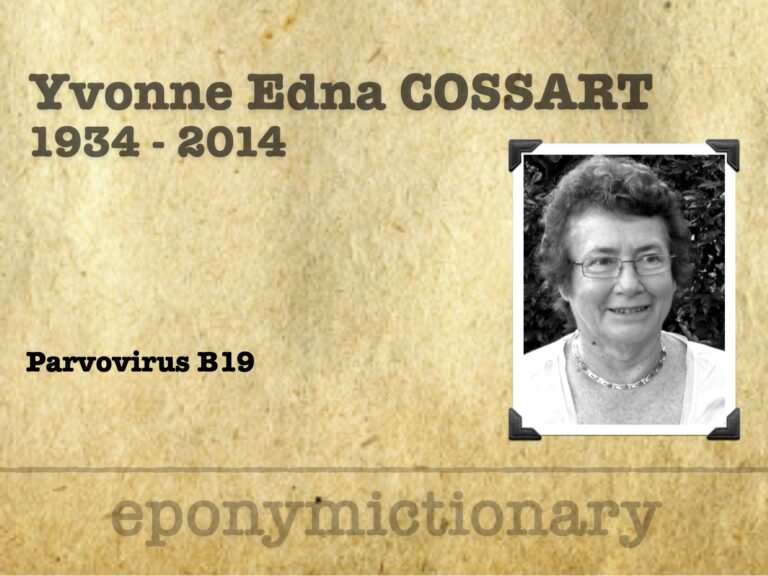
Yvonne Cossart
Australian virologist Yvonne Cossart (1934–2014), pioneer of parvovirus B19 research, teacher, and reformer of medical education.

Australian virologist Yvonne Cossart (1934–2014), pioneer of parvovirus B19 research, teacher, and reformer of medical education.
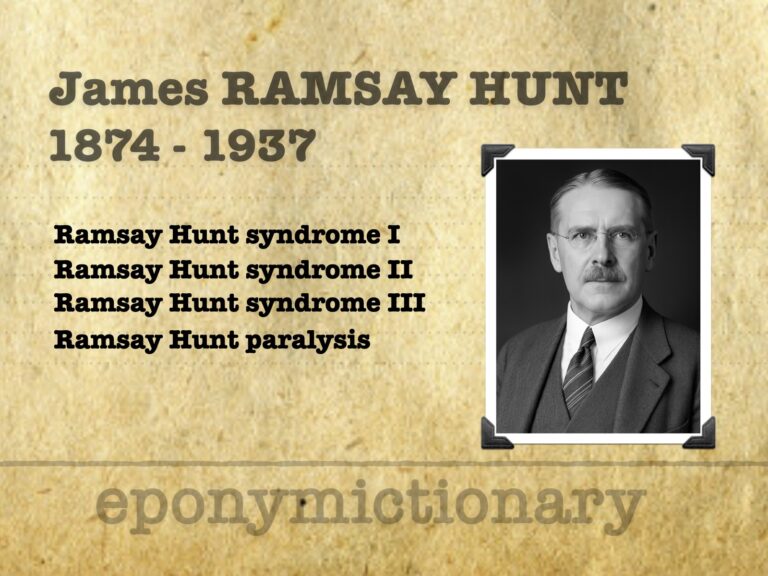
James Ramsay Hunt (1874-1937) American neurologist. Renowned for his contributions to the field of neurology. Several conditions bear his name including Ramsay Hunt syndrome (1907)

Howard Henry Tooth (1856–1925), English neurologist; Charcot–Marie–Tooth disease; specialist in spinal degeneration and wartime medical service.

Dieulafoy’s lesion: minute gastric erosion over a large arteriole, causing massive GI bleeding. First defined as exulceratio simplex in 1898.

Georges Dieulafoy (1839–1911), French physician, pioneer of gastroenterology; remembered for Dieulafoy lesion, triad(s), and aspirator

Eugen von Bamberger (1858–1921), Austrian internist; co-described Marie–Bamberger syndrome (hypertrophic pulmonary osteoarthropathy); pioneer of clinical diagnostics.

Robert Bentley Todd (1809-1860) was an Irish physician. Provided early depictions of migraine, peripheral neuritis, and postepileptic paralysis (Todd's palsy). He also gave an important discourse on locomotor ataxy (tabes dorsalis).

Marie-Strümpell disease (ankylosing spondylitis): a chronic inflammatory spinal arthritis with progressive axial fusion, first described by Pierre Marie and Adolf Strümpell in the late 19th century.

Sylvester McGinn (1904–1984); American cardiologist; McGinn-White sign (S1Q3T3) in pulmonary embolism; pioneer in Boston cardiac care and research.
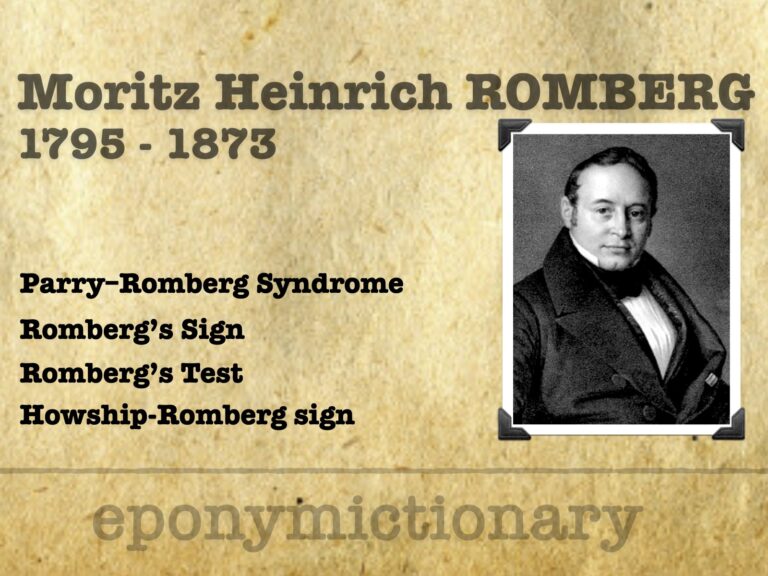
Moritz Heinrich Romberg (1795–1873) a founder of clinical neurology, Romberg’s sign, Parry–Romberg syndrome and Howship–Romberg sign
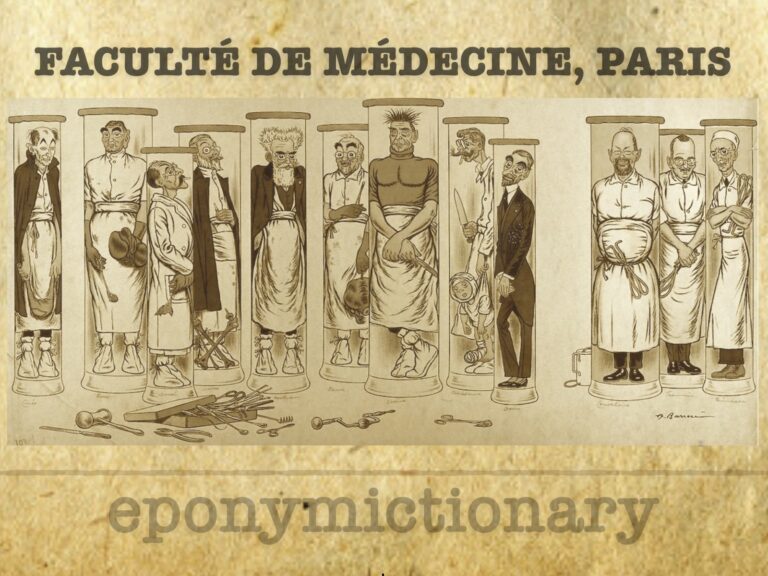
Adrien Barrère (1874-1931) produced a series of lithographs of the Professors in the Faculties of Medicine. Fourth lithograph 'A cluster of surgeons' in 1910
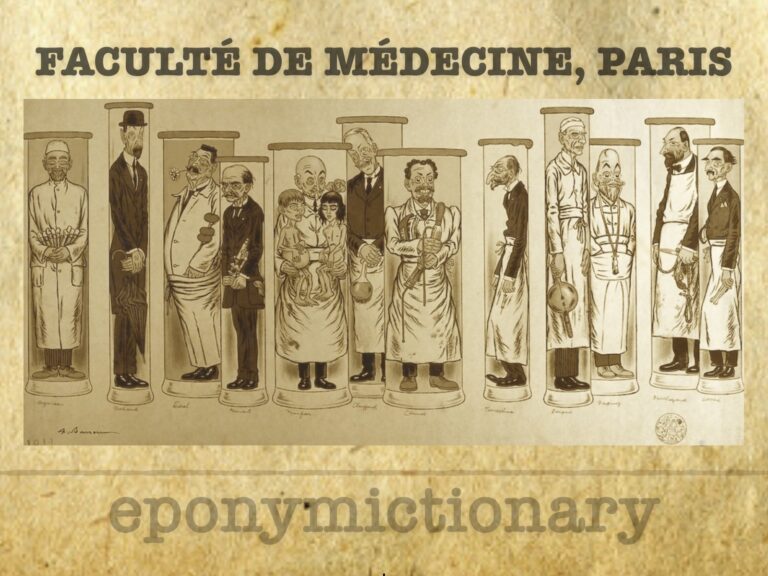
Adrien Barrère (1874-1931) produced a series of lithographs of the Professors in the Faculties of Medicine. Third lithograph 'Twelve Professors of Pathology' in 1910